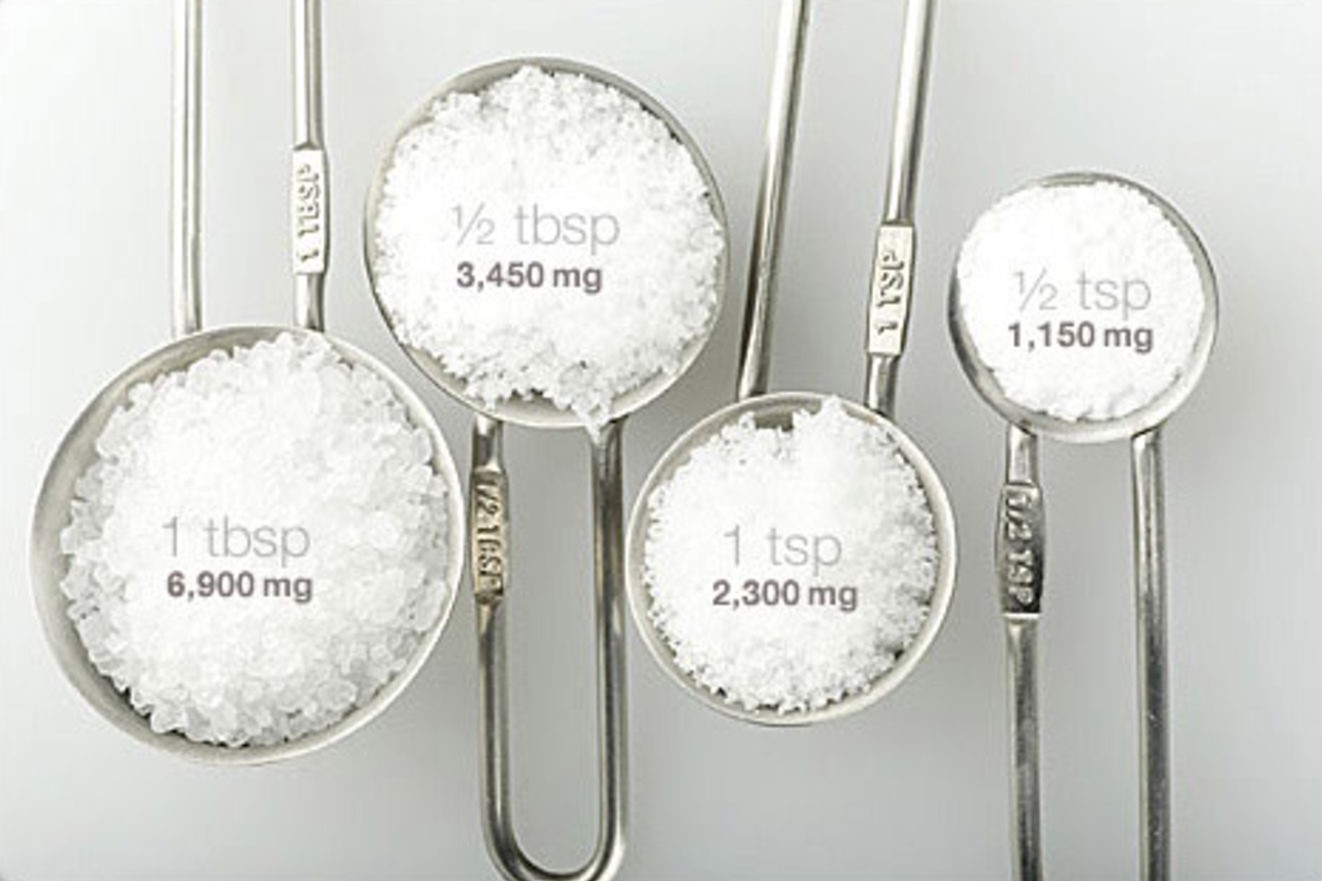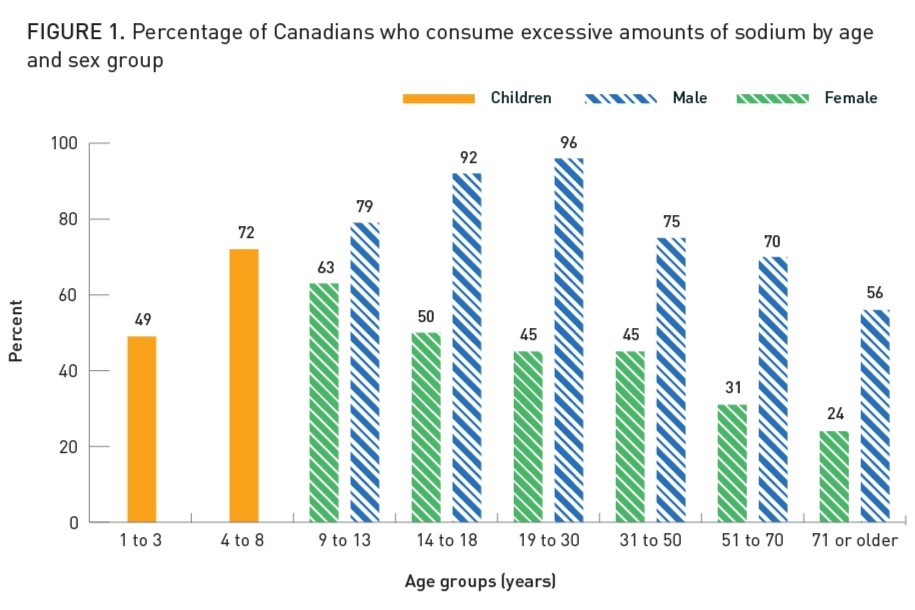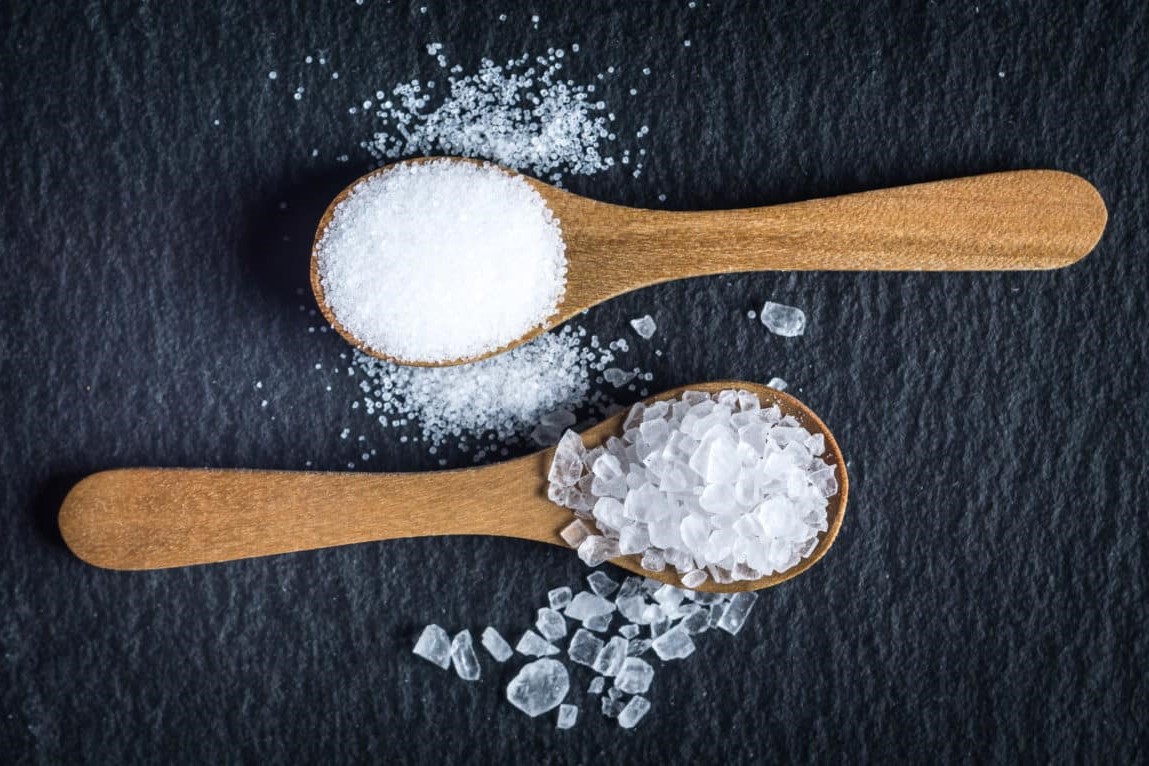.png?lang=en-CA)
Sodium is a vital mineral that plays a crucial role in maintaining fluid and electrolyte balance in our bodies. It's essential for proper muscle and nerve function, and it helps regulate blood pressure. Moreover, it is a delicious addition to meals to boost flavour and depth. However, like many things in life, moderation with sodium is key. Consuming too much salt can have serious health consequences particularly for seniors, such as dehydration, high blood pressure, and heart problems.
So how much sodium should we really be consuming, and how can we find the sweet spot of what the right amount of sodium is for our individual diets?
Recommended Sodium Intake for Adults and Seniors
Health Canada generally recommends that most Canadian adults consume between 1200-1500 mg of sodium per day, and not exceed 2300 mg per day, which is the equivalent of just over one teaspoon of salt. This goal to limit sodium intake to a maximum of 2300 mg per day aligns with the Chronic Disease Risk Reduction (CDRR) limit for sodium. This guideline recommends reducing sodium intakes to below 2300 mg to lower the risk of cardiovascular disease, hypertension, and other chronic diseases and issues.
Always consult with your healthcare professional to determine the right amount of sodium for your diet, especially if you have existing health conditions or are taking medications that affect sodium levels.

Current Average Sodium Intake for Adults and Seniors
Despite recommendations, estimates indicate that the average daily sodium intake of Canadians is 2760 mg, much higher than even this upper recommended limit and exceeding the Chronic Disease Risk Reduction (CDRR) level. Men typically have higher sodium intakes compared to women, with an average intake of 3133 mg per day for adult men compared to 2325 mg per day for adult women. Alarmingly, this means that 75% of men and 48% of women exceed the Chronic Disease Risk Reduction (CDRR) limit.
For seniors, monitoring sodium intake is particularly important. As we age, our bodies become more sensitive to the effects of sodium, and the risk of high blood pressure and cardiovascular disease increases. Notably however, older Canadians, particularly those over the age of 70, tend to have the lowest sodium consumption among Canadian adults.
Men between 51 and 70 consume an average of 2820 mg of sodium per day, compared to women in the same age group who consume an average of 2030 mg. Sodium consumption continues to decrease for both genders after 70, with men consuming an average of 2440 mg and women consuming an average of 1950 mg per day. Despite these lower intakes, 56% of men over 70 and 24% of women over 70 still consume excessive amounts of sodium over the Chronic Disease Risk Reduction (CDRR) limit.
This highlights the importance for older adults to be mindful of their sodium consumption, while ensuring they do not consume too little either. In maintaining a goal of 1200-1500 mg of sodium per day, taking care to not exceed 2300 mg per day, and speaking with a healthcare professional to determine individual dietary needs, seniors should be able to find the right balance of enjoying salty flavours while maintaining good health.

Per Health Canada, Sodium Intake of Canadians in 2017 Report
The Impact of Excess Sodium
Consuming too much sodium can lead to various health issues for seniors, such as:
-
High Blood Pressure: Excess sodium causes the body to retain water, which increases blood volume, and consequently, blood pressure. This is a significant risk factor for heart disease and stroke.
-
Heart Disease: High sodium intake is associated with an increased risk of heart disease. Over time, high blood pressure can damage the arteries, leading to poor heart health and risk of heart attacks and heart failure.
-
Kidney Disease: The kidneys help to regulate sodium levels in the body. Excess sodium can overwork the kidneys, leading to kidney disease and other issues.
-
Osteoporosis: High sodium intake can cause the body to lose calcium, weakening bones and increasing the risk of fractures.
The Importance of Consuming Enough Sodium
While it is critical to avoid excess sodium, it is equally important to ensure that you are consuming enough sodium to maintain bodily functions. Sodium deficiency, or hyponatremia, can have serious health consequences, particularly for seniors. Symptoms of sodium deficiency include:
-
Nausea and Vomiting: An early sign of sodium deficiency can be nausea and vomiting from a lack of fluid and electrolyte balance in the body.
-
Headache: Too low sodium levels can cause headaches and migraines.
-
Confusion and Cognitive Impairment: Sodium plays a key role in nerve function, and a deficiency can lead to confusion and cognitive impairment.
-
Fatigue: Low sodium levels can result in extreme tiredness and fatigue.
-
Muscle Weakness: Sodium is essential for muscle function, and a deficiency can cause muscle weakness and cramps.
Seniors are particularly at risk of sodium deficiency if they are on medications that increase urination such as diuretics, take certain antidepressants, or have thyroid conditions. It is always important to monitor sodium intake closely and consult a healthcare professional or doctor to ensure you are getting the right amount for you.

Tips For Reducing or Managing Sodium Intake
-
Talk To Your Doctor: Consult your healthcare professional to determine the right amount of sodium for your diet, especially if you have existing health conditions or are taking medications that affect sodium levels.
-
Read Nutrition Information and Meal Labels: Check the sodium content on your food labels. Look for products labelled ‘Low Sodium’ if you need to reduce your daily intake.
Sodium is an essential mineral for our bodies, yet it is crucial to find the right balance in our diets to maintain optimal health. By being mindful of sodium intake and following daily recommendations, consulting a healthcare professional to tailor your diet to your individual needs, and making informed dietary choices, you can reduce the risk of health issues associated with excess or too little sodium.

Heart to Home Meals: A Salt Solution
At Heart to Home Meals, we understand the importance of maintaining a balanced diet for seniors. Our meals are carefully crafted to meet nutritional needs for health maintenance, without compromising on taste. For seniors wanting to reduce their sodium intake, look for our Low Sodium Diet Code meals. These Low Sodium meals, containing 140 mg or less of sodium per 100 g, are designed to limit salt content without sacrificing flavour.
By choosing Heart to Home Meals, you can enjoy a variety of delicious meals that support your health goals. Browse our Low Sodium offerings here to make choosing the right meals for you easier.


